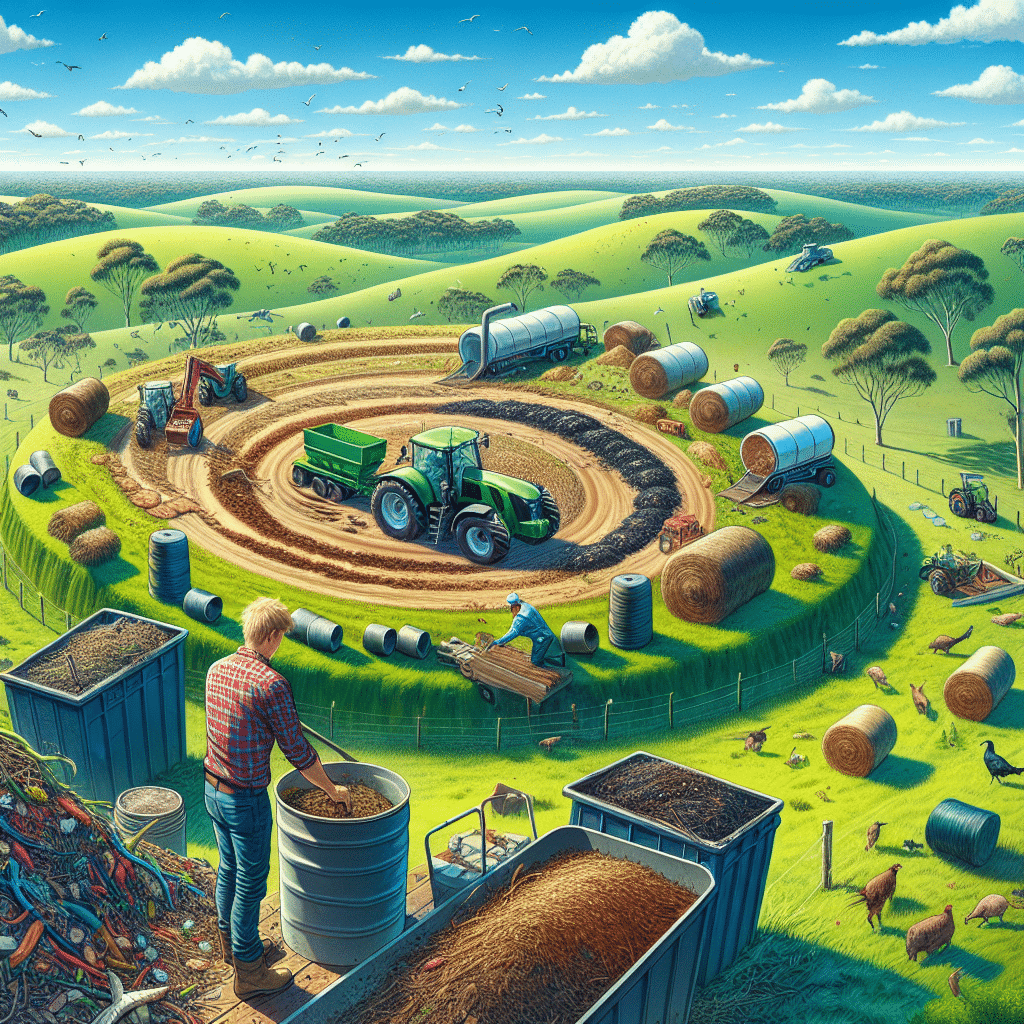
Table of Contents
- Effective Strategies for Managing Agricultural Residuals in Australia
- What Are Agricultural Residuals?
- Why Proper Management is Essential
- Strategies for Managing Residuals
- 1. Recycling and Reusing Residuals
- 2. Implementing Zero Waste Practices
- 3. Collaboration with Local Services
- 4. Investing in Technology
- 5. Education and Training
- Navigating Regulations
- The Role of Brisbane South Skip Bins
- Conclusion
Effective Strategies for Managing Agricultural Residuals in Australia
Australia’s agricultural sector is critical to the economy, bringing in billions of dollars each year. However, with the bounty of produce comes a mountain of agricultural residuals. From crop residues to livestock waste, managing these by-products efficiently is crucial. Let’s explore effective strategies for managing agricultural residuals and why partnering with local services like Brisbane South Skip Bins can make a significant difference.
What Are Agricultural Residuals?
Agricultural residuals include any leftover materials from farming activities. These can be:
- Crop Residues: This includes stalks, leaves, and other materials left after harvesting.
- Animal Manure: Waste from livestock that can be transformed into valuable fertiliser or compost.
- Pesticide Containers: Empty containers that need to be disposed of properly to avoid environmental harm.
- Weeds: Unwanted plants that can affect crop yields if not managed correctly.
Why Proper Management is Essential
The benefits of effectively managing agricultural residuals extend beyond compliance with regulations. They include:
- Environmental Protection: Preventing pollution and promoting biodiversity.
- Soil Health: Enhancing soil quality through the recycling of nutrients.
- Cost Efficiency: Reducing waste disposal costs and potentially generating additional income from recycled materials.
- Compliance: Meeting local regulations in Brisbane, Logan, and Ipswich to avoid fines and penalties.
Strategies for Managing Residuals
Here are some effective strategies to manage agricultural residuals that every farmer in Australia should consider:
1. Recycling and Reusing Residuals
One of the most sustainable practices is to recycle and reuse agricultural residuals. For instance:
- Crop Residues: Instead of burning or discarding them, farmers can incorporate residues back into the soil, promoting better nutrient content and organic matter.
- Composting: Animal manure and organic waste can be composted to produce high-quality fertiliser. This reduces reliance on chemical fertilisers and enhances soil structure.
2. Implementing Zero Waste Practices
Zero waste initiatives focus on reducing waste generation at the source:
- Evaluate current farming practices and identify areas where waste can be minimised.
- Train staff on proper waste segregation to ensure recyclables are diverted from landfills.
3. Collaboration with Local Services
Engaging with local waste management services, like Brisbane South Skip Bins, can streamline the disposal of agricultural residuals:
- They provide a convenient way to dispose of bulky materials, ensuring compliance with local regulations.
- They can help farmers plan their waste management strategy, optimising collection times and promoting sustainability.
4. Investing in Technology
With advancements in technology, farmers can leverage digital tools for waste management:
- Data Analytics: Use data to understand waste generation patterns and optimise disposal methods.
- Sensors and Automation: Implement sensors to manage nutrient levels in soil, minimising excess waste.
5. Education and Training
Ongoing education for farmers and staff is vital to effective waste management. Consider:
- Workshops and training sessions focusing on sustainable farming practices and waste reduction strategies.
- Partnerships with local agricultural extension services for access to resources and expertise.
Navigating Regulations
In Australia, particularly in Queensland, there are strict regulations regarding agricultural waste management. It’s essential to stay updated on:
- Local council guidelines on the disposal of agricultural residuals.
- Environmental regulations to ensure practices adhere to state laws.
- Proper handling of hazardous waste, such as pesticide containers, which must be disposed of at designated facilities.
The Role of Brisbane South Skip Bins
Brisbane South Skip Bins offers tailored solutions for farmers dealing with agricultural residuals in the Brisbane, Logan, and Ipswich areas. Their services include:
- Various skip bin sizes to accommodate every type of agricultural waste.
- Flexible booking options that suit farm schedules.
- Expert advice on managing and disposing of agricultural residuals sustainably.
Conclusion
Managing agricultural residuals is not just a necessity but an opportunity to enhance productivity and environmental stewardship in Australia’s agricultural sector. By adopting effective strategies like recycling, engaging with local services, and staying informed on regulations, farmers can turn waste into a valuable resource. For assistance with your agricultural waste needs, consider reaching out to Brisbane South Skip Bins. They are ready to help you manage your residuals efficiently and sustainably.
About Brisbane South Skip Bins
Brisbane South Skip Bins offers comprehensive Skip Bin Hire Services for local household, Industrial, and commercial clean up. Affordable Skip Bin Hire – Brisbane South, Logan, Beaudesert and Ipswich
We can help you get rid of all types of unwanted rubbish, making the removal process easy, and saving you from having to load up trailers and make multiple trips to the rubbish tip.
Whether you’re renovating, landscaping, or doing a garden cleanout, we can take care of all your waste materials and unwanted items.
Our skip bins come in a range of sizes to accommodate all your removal needs.
Talk to Mick 0466 776 314 for help choosing the right type skip bin for your needs and save you money.
https://www.brisbanesouthskipbins.com.au/
#skipbinhirebrisbane #skipbinhirelogan #skipbinhirebeaudesert #skipbinhireipswich








